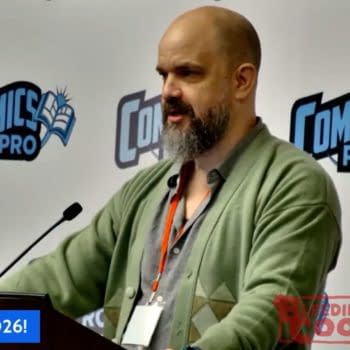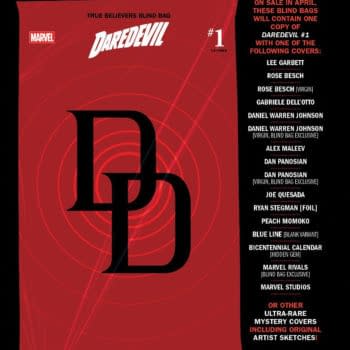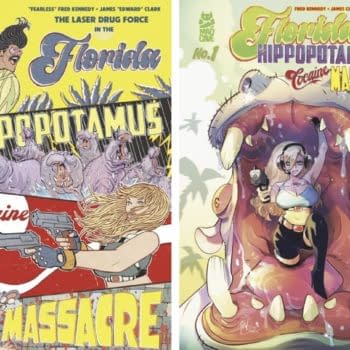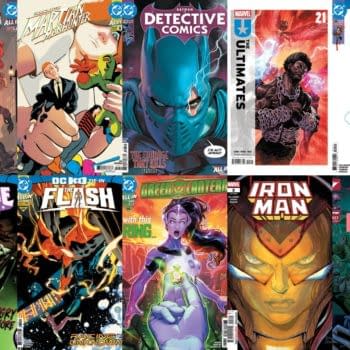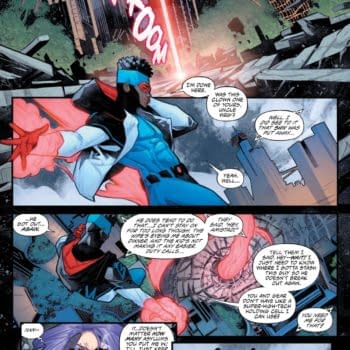Posted in: Comics, Digital | Tagged: jim carrey, kick ass 2
Think Of The Children: Rethinking Comics History
Elizabeth Herman writes;
There's an old joke that every comic book fan knows exactly what Fredric Wertham's Seduction of the Innocent is about, despite not one person ever actually reading it. The 1954 Senate Subcommittee for Childhood Delinquency trials that resulted from the book's publication marked a time that changed the entire nature of the industry, a time that forced new strict censorship and narrow-minded moral standards onto publishers. What better way to honor this significant moment in the medium's history than to satirize it with monster fighting senators and mad scientists comic book writers?
EC Steiner and Christian Sager's Think of the Children is a hilarious and entertaining satirical horror one shot that acts as a fictional origin story for the Comics Code Authority. The Code, which was in place for 57 years, was based around Wertham's theory that the unregulated comic book industry influenced young boys into leading a life of crime and immoral conduct. In Sager's story, Wertham is used as a character along with the actual cast of figures from the trial including the committee's senators and legendary writer/publisher Bill Gaines.
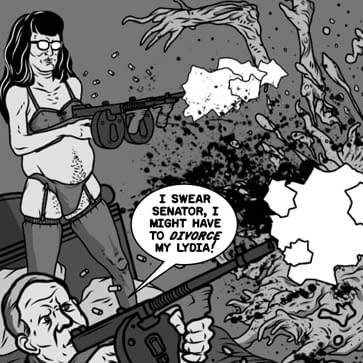
The book intelligently applies the classic horror motif where needed while still laying evidence of its own modern perspective. Although the comic honors the trademark 1950s science-fiction style, its level of action and its dark commentary clearly make this a contemporary read for a contemporary audience.
EC Steiner's artwork reiterates that same strategy. Every page is drawn strictly in black and white to capture the time period while the scenes almost never stray from what's actually being said by the text just as the old comics once did. The only moments in which Think of the Children breaks this pattern have purpose as well, again hinting towards that underlying modern criticism.
But what's truly so important 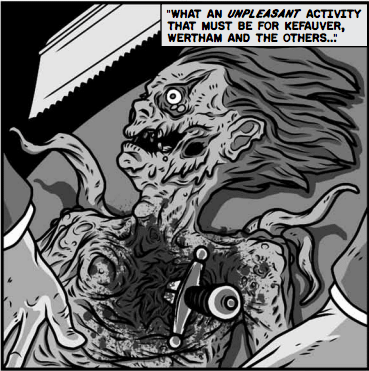
Could we ever eliminate our current violent reality by eliminating violent fantasies? If the Kick Ass films along with all the other stories like them were to suddenly disappear, would that make the news any easier to watch? Sager certainly gives his opinion on the matter in Think of the Children, especially with his poignant, unexpected ending.
This one shot is a must have for any comic book historian not simply for the novelty of it but for Sager's intelligently hilarious understanding of satire. Not only is it wildly entertaining to see these self-described "blue-nosed" characters take on the personality of badass creature-hunters, but the point made within the story is a timeless statement on our relationship to the realm of fiction.









